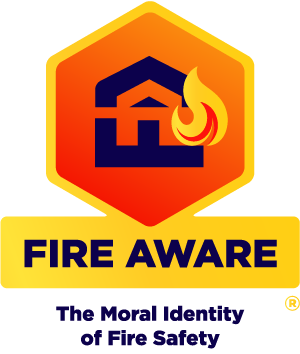Responsibilities & Legislation
Fire Risk Assessment (FRA)
Under the Regulatory Reform (Fire Safety) Order 2005 (RRO/FSO) a Fire Risk Assessment is a legal requirement. Worryingly many people continue to take a ‘head in the sand’ approach to fire safety and think ignorance will remove liability.
‘According to the Regulatory Reform (Fire Safety) Order of 2005, as well as the Fire (Scotland) Act of 2005 and the corresponding Fire Safety (Scotland) Regulations of 2006, it is required that the Responsible Person or duty holder conduct a comprehensive fire risk assessment. Furthermore, they are obligated to establish and uphold a fire management plan’.
Failure to carry this out could result in a fine, imprisonment, or both.
This law applies to anyone falling under the following:
- If you are responsible for business premises
- If you are an employer or you are self-employed with business premises
- If you are responsible for a part of a dwelling where that part is solely used for business purposes
- Charities or voluntary organisations
- If you provide accommodation for paying guests
- If you own or operate a residential property with any communal area such as a House in Multiple Occupation (HMO)
If you fall under any of the points above you, or a suitably competent person, needs to complete a Fire Risk Assessment every year, or if any material changes occur. It is your responsibility to ensure that fire hazards and those individuals at risk from those hazards within your building are identified and appropriate action is taken to remove risk.
Further to this, if you have five or more people working at your premises or your business has a licence under enactment in force, it is a legal requirement for fire risk assessments to be a logged as a written record.
We recommend you refer to your risk assessment regularly as best practise to ensure you stay familiar with requirements. In addition if significant changes are made, such as changes to an office layout, we recommend you refer to the FRA to see if these will have any impact on fire safety.
Understanding Fire Safety Changes Effective From October 1st 2023
Fire Doors
Fire doors form part of your building’s essential Passive Protection measures. They are a life-saving device. Whilst in everyday use they are considered just a means of entering and exiting a room, but in the event of a fire their importance changes significantly; they stop the spread of fire and smoke giving the occupants extra time needed to get to a potential escape route and ultimately to a place of safety. However, this is all completely reliant on the doors being in good working order and maintained properly.
Article 17 of the Regulatory Reform (Fire Safety) Order 2005 (RRO/FSO) makes it a legal requirement to ensure that fire resisting doors and escape doors are correctly installed and adequately maintained in order for them to be fit for purpose. The authorities have the power to enforce the RRO/FSO and to prosecute or even close buildings down where breaches are discovered. Building owners need ‘responsible persons’ as referenced in the Fire Safety Order to help them comply with fire door regulations.
BS9999:2017 Annex I.6.2 states “All fire doors should be inspected every six months.”
For a fire door to be maintained properly, and ensure it offers all the protection it needs to, it should be checked regularly to ensure it functions correctly. Much like other Fire Safety Devices within a building, such as fire extinguishers or smoke alarms, it should be considered in exactly the same way. Even the slightest change to a door or its surroundings can soon prevent it from being effective for fire safety and deem it no longer compliant. Through regular inspections your doors can be assessed and maintained to increase the safety of occupants as well as ensure you remain fully compliant.
The Crucial Importance of Regular Fire Door Inspection and Maintenance.
Prevention is Better than Cure
The saying “prevention is better than cure” finds no better application than in the realm of fire safety. Frequently, when a fire occurs, finding a cure is simply not feasible. The repercussions could range from financial collapse for a business to, more significantly, loss of life. This underscores the critical significance of comprehending fire risks. It is therefore of utmost importance to ensure the implementation of highly effective fire prevention measures.
As well as good practise it is a legal requirement to stay compliant at all times and many businesses have been unable to recover after a fire. Many insurance companies assume all fire regulations have been complied with. In the event of a fire a claim may be severely affected if fire safety requirements have not been met. If you ever have any uncertainties about ongoing compliance we would strongly recommend you contact our Fire Risk Assessors for advice.






